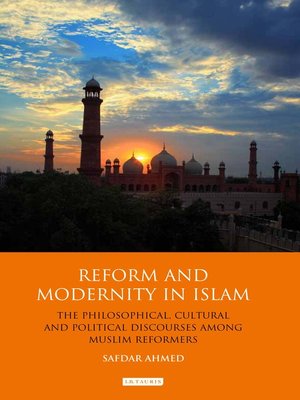Reform and Modernity in Islam
ebook ∣ The Philosophical, Cultural and Political Discourses Among Muslim Reformers
By Safdar Ahmed

Sign up to save your library
With an OverDrive account, you can save your favorite libraries for at-a-glance information about availability. Find out more about OverDrive accounts.
Find this title in Libby, the library reading app by OverDrive.



Search for a digital library with this title
Title found at these libraries:
| Library Name | Distance |
|---|---|
| Loading... |
The debate over Islam and modernity tends to be approached through a Eurocentric prism that posits Western norms as a template for progress, against which Islamic societies can be measured. This has led to essentialist notions of Islam, that have missed the historical development of Muslim reformist thought that actively engages with the world around it - seeking to reconfigure Islam within the diverse conditions of modernity. Safdar Ahmed historicises Islamic reform, by critically examining the work of prominent intellectuals, such as Muhammad Abduh, who have approached Western science in order to prove Islam's compatibility with the modern world.
Exploring the work of key reformist thinkers in Islam, from the nineteenth century to the present day, through the Indian Subcontinent to the Middle East to Europe and the US, this book places progressive Islamic thought into broader landscapes of philosophical, cultural and political discourses on modernity. Ahmed engages with critiques of Eurocentric positions on this subject to paint a complex and nuanced picture that goes beyond the idea that Muslim reformers have either reproduced or reacted against Western ideas. Rather, they have reconstructed these ideas for their own purposes and in accordance with their own contexts. He points to an appropriation and remoulding of Western ideas running through modern Islamic thought on nationalism and sovereignty, femininity and gender, and even traditional forms of literary expression. Women and education is a central front in this debate, and Ahmed investigates this through the work of key thinkers such as Qasim Amin, Ashraf Ali Thanawi and Abdul A'la Maududi.
In order to uncover new historiographical perspectives, Ahmed employs elements of postcolonial theory, critical theory and gender studies as he challenges the notion that there can be no singular understanding of modernity.







